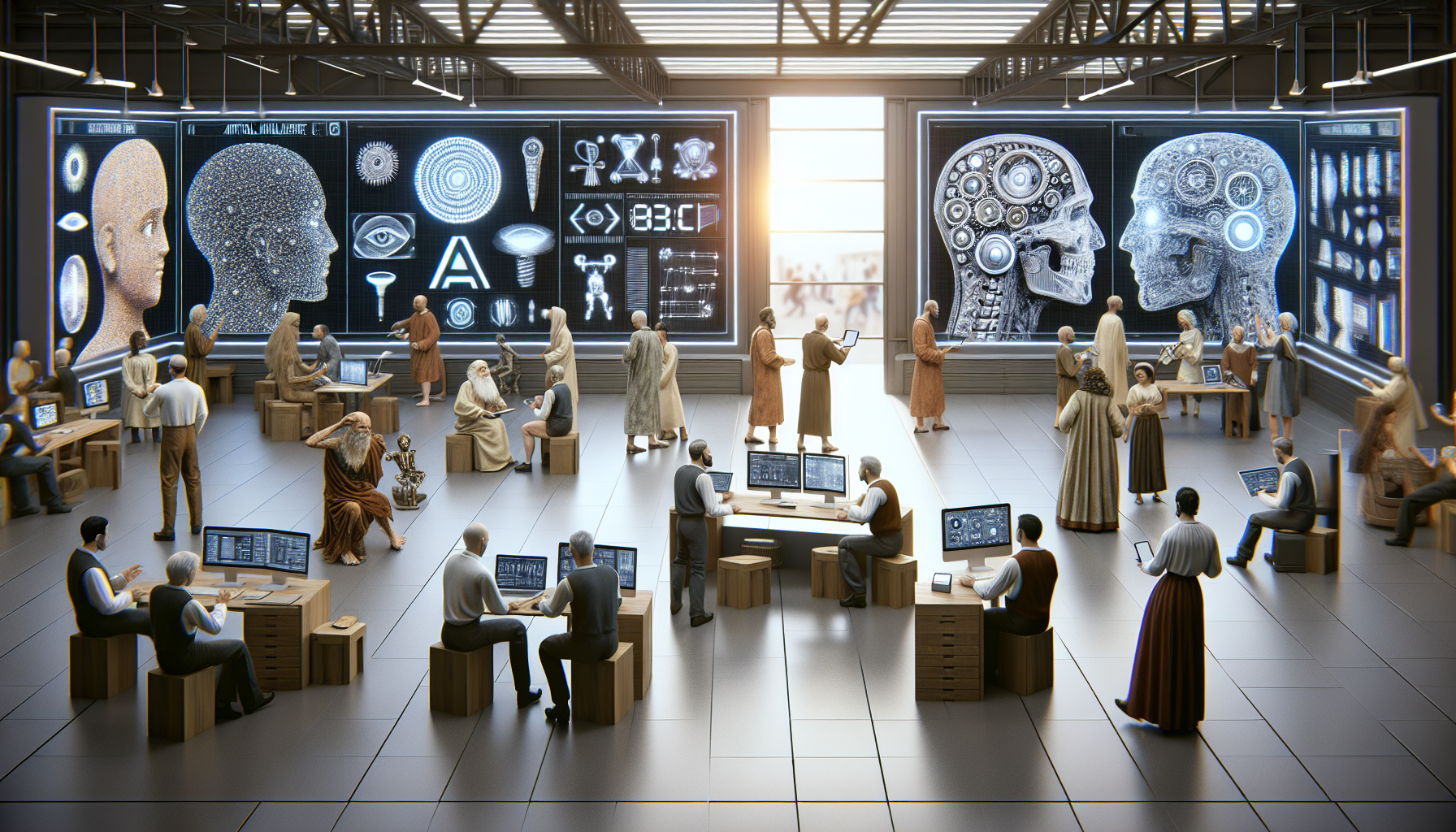
AI in Supply Chain Management: A Journey Through Time to Optimize Operations
February 19, 2025
Let's take a stroll down memory lane and explore how artificial intelligence (AI) has transformed supply chain management into a finely tuned symphony of efficiency and innovation. Before AI took the stage, supply chain management was a juggling act involving spreadsheets, manual tracking systems, and a whole lot of guesswork. Remember those days when inventory management was akin to looking into a crystal ball? Thankfully, AI has flipped the script, and it's been quite the journey.
The initial foray into using technology for supply chain management was like trying to catch a wave with a boogie board—helpful, but not quite there yet. Early computerized systems were limited to straightforward data processing tasks, lacking the finesse to predict, adapt, and optimize. However, the seeds of smart supply chains were being planted, and those seeds would eventually grow into something extraordinary.
Fast forward to the present, and AI is the surfboard that professionals ride on the ocean of supply chain complexities. But how did we get here? It wasn't an overnight transformation. It was a gradual evolution, a series of small, significant steps that cumulatively revolutionized the way businesses operate.
One of the pivotal moments in this evolution was the integration of machine learning algorithms into supply chain systems. These algorithms have the uncanny ability to process vast amounts of data and identify patterns that are invisible to the human eye. Think about demand forecasting, for instance. Instead of relying on historical sales data alone, AI models can now consider a myriad of factors such as market trends, weather patterns, and even social media buzz to predict demand with remarkable accuracy.
Another fascinating chapter in this story is the role of natural language processing (NLP). Once a feature of science fiction, NLP now helps supply chain managers sift through troves of unstructured data—like emails and customer reviews—to glean insights that were previously unreachable. It’s like having a super sleuth who can read between the lines, picking up nuances in customer sentiment or supplier communications that could impact the supply chain.
And let's not forget the game-changing impact of AI-powered automation in logistics. From autonomous vehicles to intelligent drones, AI has made it possible to move goods with unprecedented speed and efficiency. Picture a world where deliveries are made around the clock without human intervention. This world is no longer a distant dream but an emerging reality, thanks to AI.
The historical perspective on AI in supply chain management also involves understanding the challenges and limitations that have shaped its journey. The integration of AI into supply chains is not without its hurdles. Data quality and silos, for instance, can hinder AI's ability to perform optimally. Moreover, the ethical considerations of AI—such as job displacement and privacy concerns—are topics that continue to spark debate.
However, the benefits of AI in optimizing supply chain operations are undeniable. Take inventory management, for example. AI-driven systems can dynamically adjust stock levels in real time, minimizing the dreaded out-of-stock scenario while also reducing excess inventory. This level of precision was once the stuff of legend but is now a practical application of AI.
The journey of AI in supply chain management is ongoing, and the path ahead promises even more exciting developments. The next frontier could involve enhanced collaboration between AI systems and human workers, creating a synergy that amplifies the strengths of both. Imagine a scenario where AI handles the tedious number-crunching, freeing up human workers to focus on strategic decision-making and innovation.
So, as we reflect on how far we've come, the question remains: What does the future hold for AI in supply chain management? Will we see a time when AI not only optimizes operations but also anticipates disruptions before they even occur? The possibilities are as vast as they are exciting, inviting us to consider not only the technical advancements but also the human ingenuity that will continue to drive this transformation.
As we conclude our walk down this historical path, let's ponder the potential of AI to not just optimize but revolutionize supply chain management. How might these technologies reshape our understanding of efficiency, innovation, and collaboration in the years to come? Only time will tell, but one thing is certain: the journey is far from over.


